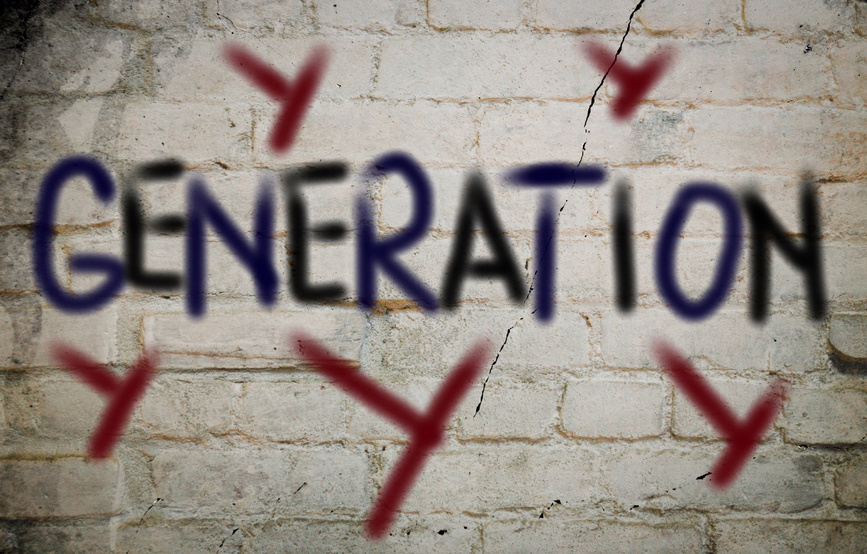In a recent survey of job seekers, 95% said they would be happy to work for someone significantly younger than them. Hopefully this indicates that the battle of age and generation discrimination is half won. I say half won because although people are willing to work for younger managers (i.e. Gen Y’s), there is still concern over whether younger managers will hire older workers.
It is natural for human beings to seek the company of people who are similar to them and age becomes a telling factor here. A Gen Y manager is more likely to hire a Gen Y worker over any other generation, not just because of personal bias and a tendency towards a like-attracts-like mentality, but also because they are more likely to be treated with respect from someone similar to them. The same logic goes for Baby Boomers and Gen X. Like attracts like and thus a team is created with social cohesion.
The issue of respect between generations is a difficult one. We’ve all heard the following statements as if they are empirically true:
- Baby Boomers can’t keep up with new technology
- Gen Y’s don’t show respect for those with more seniority and experience under their belt.
- Older workers are resistant to change and think they have learned everything they need to know.
- Gen Y has a false sense of entitlement, believing they are equal to others who have been doing the job for years.
These statements have a sliver of truth to them; however they are still generalisations and stereotypes. The problem comes down to a natural shift in the values of each generation. Orrin Onken’s blog “Surviving the Younger Boss” perfectly sums up this dilemma:
“Because of a value shift, a shift that happens every twenty years or so during an average life, a fifty year old often has no more connection to the mental state of a thirty year old than my thirty year old boss has to…a ten year old skateboarder. The thirty-year old and the skateboarder, however, do not have to work together. The fifty-year old and the thirty-year old do. To make this pairing work both sides have to face the truth about aging and work performance.”
Instances of the younger boss/older employee dynamic are becoming more common. A Career Builder survey conducted in 2012 reported that 34% of US workers are currently reporting to someone younger. This is occurring for two major reasons; older workers are retiring later and with technology driving business innovation, younger people are more frequently in positions of power earlier on in their career. Both sides of this dilemma must make an effort to bridge the gap between generations.
What can older workers do?
- Understand that your young manager is a manager for a reason. It is likely that they possess the intelligence, skills, knowledge and qualifications to the job. They may be ‘green’ in some areas, but keeping an open mind and allowing them to learn and grow in the role is important.
- Focus on the positives of the situation; a younger manager may mean more energy, fresh ideas and innovation.
- Don’t assume that your age will win you respect from a younger manager. Respect must be earned no matter who is in leadership.
- Be open to the new ideas the young manager brings to the table and be careful not to fall into the mindset of “this is the way we’ve always done x…” No company ever evolved or innovated by doing the same thing over and over again.
- Your young manager should hopefully be open to information and advice from someone of your experience and seniority, provided it is delivered in a peer to peer way.
What can younger managers do?
- Understand that new technology is not easily assimilated by everyone. Provide training for any staff (regardless of age) that may have trouble.
- Ask for help. Show your respect for someone’s seniority by admitting when you have a gap in your knowledge that may be filled by their experience.
- Tap into the vast knowledge your more senior staff will hold. This can be highly valuable information and IP.
- Understand that older workers are familiar with a different style of communication. There may be a preference for a face-to-face meeting rather than email or instant messaging communication.
- Value the loyalty that older workers exhibit. They tend to stay in jobs longer than younger people who have a tendency to job-hop in order to build their career.
- Consider older workers for positions without bias or pre-conceived notions. Older workers are reliable, hard-working and dedicated. There is little need to worry about career progression as their priority is more likely to be stability as they prepare for retirement.
- Pair up older workers with younger workers for a mutual mentorship program. This kind of program has seen some success recently where older workers mentor on commercial skills and share their business acumen, while younger employees mentor on technology, social media and innovation. The result is a cohesive team that learns and develops together.
- Just as older employees must work to earn your respect, you must work to earn their respect. Respect is always a two-way street.
Weathering the storms of generational differences can be tough and ego can enter into the equation very quickly if both parties don’t make a concerted effort to communicate and compromise. Older workers need to trust that the younger manager has been put in charge for a reason and young managers need to see the value older workers bring to a business. If both parties can approach the situation by seeing the positives of each individual, rather than the negative stereotypes related to ‘young’ and ‘old,’ then a mutually beneficial working relationship can be built.












